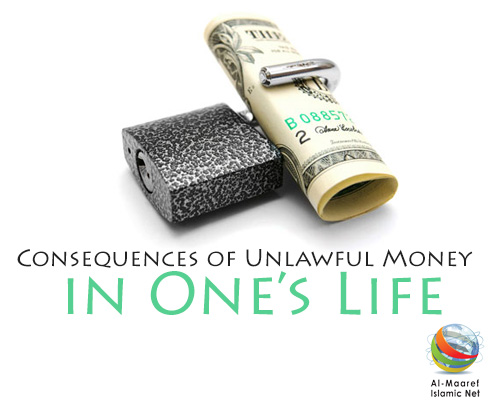Definition
What is good represents the righteous deeds with which The Most High God
ordered us, like: praying, fasting, paying the fifth, fighting for God’s sake,
keeping connection with kins, filial obedience, honesty, loyalty, etc.
What is abominated represents the bad deeds which The Most High God forbade us
to do, like: backbiting, escaping from the fight for God’s sake, filial
disobedience, hurting the people, etc.
The Dutifulness of Ordering What Is Good and Forbidding What Is Abominated
Ordering what is good and forbidding what is abominated are two duties which
all the religiously responsible people must perform. One is not spared these
duties unless others perform them.1 The Most High God says,
﴾Let there arise out of you a band of people inviting to all that is
good , enjoining what is right, and forbidding what is wrong: They are the ones
to attain felicity﴿2
The Importance of These Two Verses
They are considered to be from the noblest and greatest religious duties, so
their dutifulness is from the necessities of the religion. The one denying them,
in spite of having considered their necessity, does not belong to the religion
of the Muslims.3
It is related that God’s prophet (God’s prayers and peace bestowed upon him and
his Household) said, “My nation will be fine as long as it orders what is
good, forbids what is abominated, and cooperate on benevolence and piety. If
they do not do this, the bliss will be taken away from them; they will be
empowered against each other; and they will have supporter neither on the earth
nor in the sky.”4
It is also related that he (God’s prayers and peace bestowed upon him and his
Household) said, “The Most Glorious and Reverent God detests the weak
believer who has no religion.” He (God’s prayers and peace bestowed upon him
and his Household) was asked, “Who is the weak believer who has no religion?” He
(God’s prayers and peace bestowed upon him and his Household) answered, “He
is the one who does not forbid what is abominated.”5
This duty is given such significance since Islam ordained the order with what is
good for the sake of preserving Islam and for the sake of protecting the Islamic
society from falsehood and deviation. By means of this duty, the message will be
delivered to the one ignorant about it; the deviating person will be guided; the
human being will be led to the performance of what is good; evil and corruption
will be fought; and the spirit of awareness and cautiousness will grow in the
nation against whatever is odd or strange from its message or thought.6
The Conditions of Their Dutifulness
The duty of ordering what is good and forbidding what is abominated is
dutiful on every religiously responsible person in case the following conditions
are available in him:7
1- Recognizing the Good and the Abominated: It is not dutiful on the
ignorant person who does not know what the good is and what the abominated is to
order what is good and to forbid what is abominated. On the contrary, he is in
need to be ordered and forbidden.8
2- The Possibility of Influence: In case the religiously responsible
person knows that his order and forbiddance will not have any influence on the
others, then it is not dutiful on him to order what is good and forbid what is
abominated.9
3- Guarding Oneself against Harm: In case the religiously responsible
person knows that his order and forbiddance will result in any harm on his self
or his money, then it is not dutiful on him to order what is good and to forbid
what is abominated.10
4- Insistence on Disobedience: In case the religiously responsible person
knows that the disobedient abandoned the disobedience and has no more gone back
to it, then it is not dutiful on him to order him with what is good and to
forbid him from what is abominated.11
The Levels of This Duty
Ordering what is good and forbidding what is abominated has several levels, that
it is impermissible to move from one level to another in case the aim is
achieved by the lower level. These ranks are as follows:
1- Disapproval by the Heart12: This level is accomplished through
showing the heart annoyance from the performance of what is abominated. This has
several examples, like showing one’s detest of the deed through closing the
eyes, turning the face away, frowning, forsaking the person, breaking up with
him, getting out of his house, etc.
2- Disapproval by the Tongue13: This level is accomplished
through the amiable word, soft talk, preaching, instruction, and illustrating
the reward and the punishment and the fear of The Most High God. In case one
does not turn away from the performance of the abominated deed, then it is
permissible to turn into the hard talk, coarseness, and threat in case this is
fruitful.
3- Disapproval by the Hand14: In case the religiously
responsible person realizes for sure that the aim is not achieved through the
two previous levels, he is then permitted to move to this third level. It is
confirmed that beating must be for the sake of reformation and education and not
for the sake of taking revenge. In addition, one must restrict to the light
beating which serves in achieving the aim; one must not reach the point of
wounding or killing because this is exclusive for the Impeccable Imam (May God
hasten his honorable revelation) or to his representative during the period of
absence.
The Etiquettes of the Order with What Is Good and the Forbiddance of What Is
Abominated15
1- The person ordering with what is good must be like the doctor who is treating
a patient.
2- The forbiddance must be kind and merciful for the disobedient in particular
and the nation in general.
3- The person ordering and forbidding must have his intention absolutely for the
sake of getting close to The Most High God.
4- The person ordering and forbidding must not deem himself far above faults and
consequently must not be arrogant with the sinner. The sinner may be endowed
with a psychological trait of which The Most High God loves him even if He
detests his deed, with the one ordering or the one forbidding being just the
opposite.
1- Tahreer Al-Waseela
[Editing the Means]/ Part One/ Page 463/ Question 2
2- The Noble Qur’an/ Al-Omran [Omran’s Household] Chapter/ Verse 104
3- Tahreer Al-Waseela [Editing the Means] / Part One/ Page 4/ Part One/ Page62
4- Tahreer Al-Waseela/ Part One/ Page 462
5- Tahreer Al-Waseela/ Part One/ Page 462
6- Ajweebat Al-Istifta’at [The Answers to the Consultations] / Part One/ Page
321/ Question 1065
7- Ajweebat Al-Istifta’at/ Part One/ Page 118/ Question 1058
8- Ajweebat Al-Istifta’at [The Answers to the Consultations] / Part One/ Page
119/ Question 1060
9- Ajweebat Al-Istifta’at/ Part One/ Page 119/ Question 1060
10- Ajweebat Al-Istifta’at/ Part One/ Page 119/ Question 1060
11- Tahreer Al-Waseela [Editing the Means] / Part One/ Page 470
12- Tahreer Al-Waseela/ Part One/ Page 471/ Question 1
13- Tahreer Al-Waseela [Editing the Means] / Part One/ Page 477/ Question 1
14- Tahreer Al-Waseela/ Part One/ Page 480/ Question 1
15- Tahreer Al-Waseela/ Part One/ Page 480/ Question 14




















